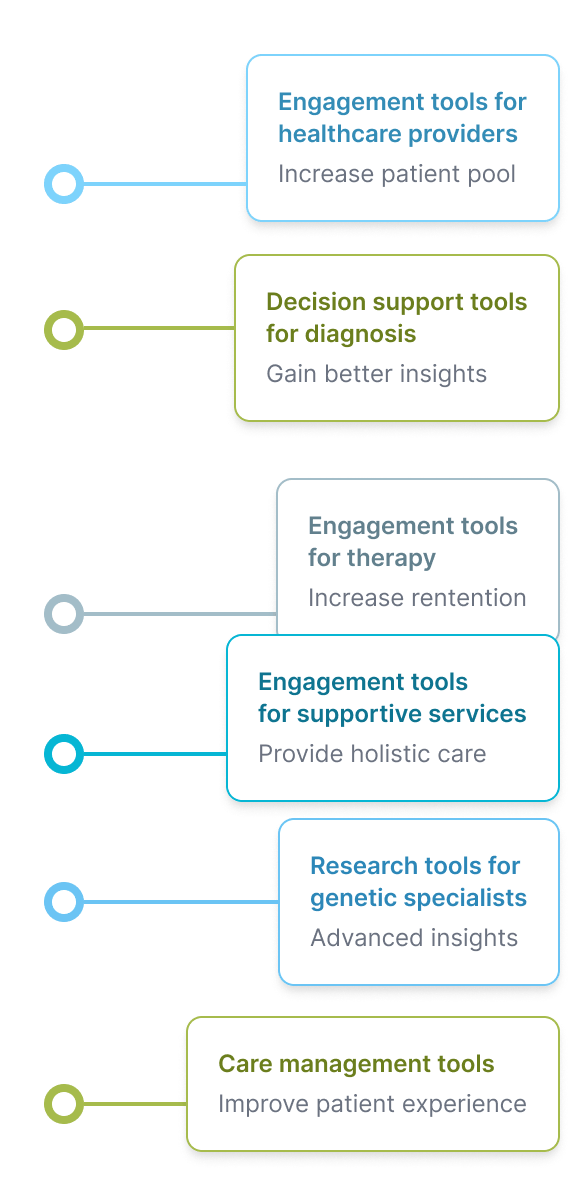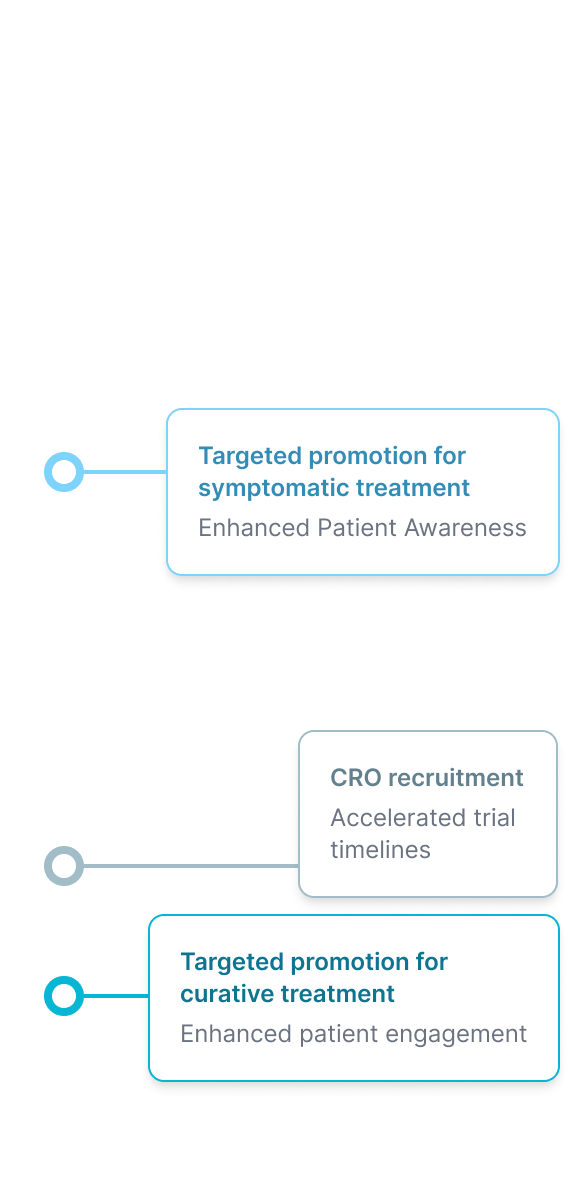Digital Front Door with AI‑Image Analysis & Risk Assessment
For Healthcare Providers, Pharma & CROs
Expedite diagnosis and reduce cost of care for developmental and genetic disorders.
Some services are currently available only in the US.
I am a
cases analyzed with
our technology
cases in the
last 3 months
cases in the
last 30 days
HOSPITALS, CLINICS
AND ORGANIZATIONS
AI-POwered image analysis & risk assessment
Intended to Assist in the Early Detection of Developmental Issues & Genetic Disorders
- Digital front door and patient retention
- Decision support tools for diagnosis
- Care management tools for therapy
- Personalized therapy options
- Qualified CRO recruitment
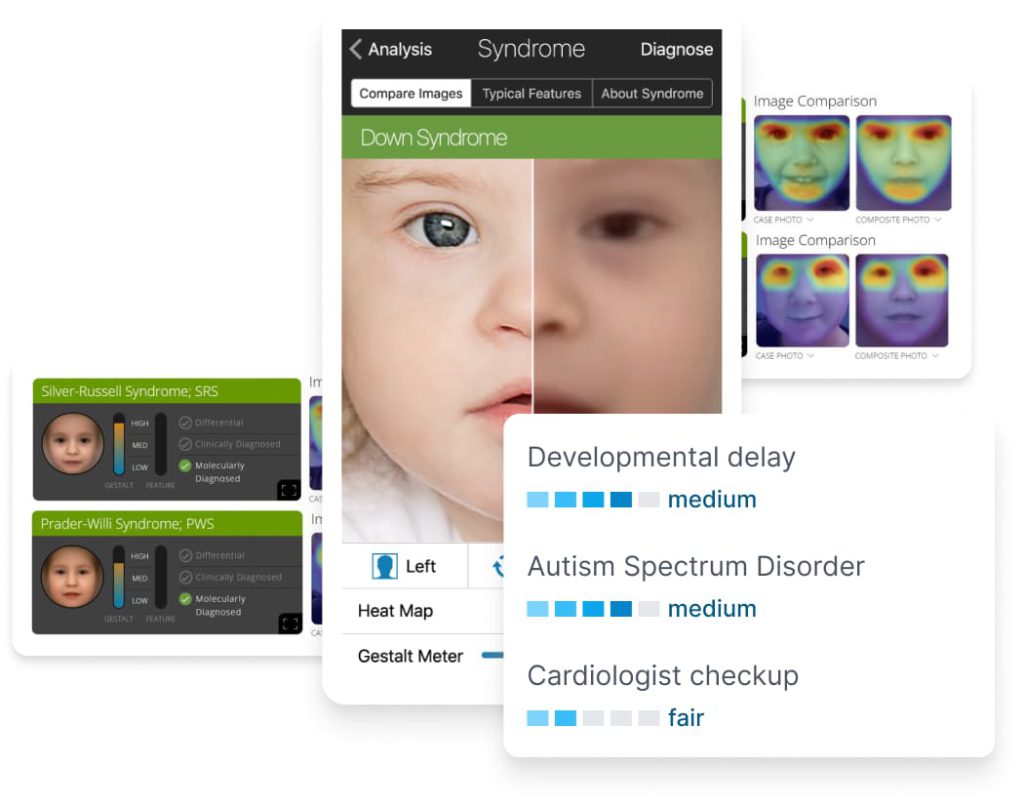
10,000+ Medical Centers, Clinics and Hospitals












From early signs to treatment plans
Supporting the Patient’s Journey Every Step of the Way
Elevating Healthcare Expertise
Empowering Professionals with AI-based Decision Support and Patient Engagement Tools

Providers
- PCPs & Pediatricians: Streamline referral decisions.
- Specialists & Geneticists: Streamline test selections and configurations.
- Improve Patient Experience.
Some services are available only in the US

Labs
- Increase diagnostic yield by +25%.
- Reduce testing costs.
- Increase reimbursement.
Some services are available only in the US
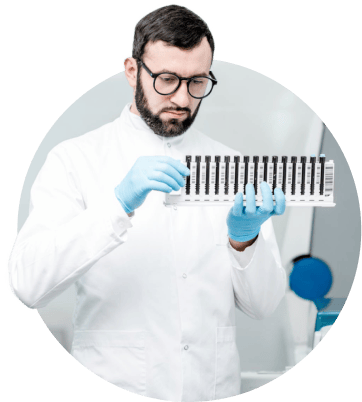
Pharma
- Explore revenue growth for existing therapies
- Discover new syndromes and therapies
- Increase Probability Of Success for new therapies, shorten time-to market
Some services are available only in the US

CROs
- Recruit more patients, faster, at lower cost
- Reduce recruitment time
- Reduce cost of site set-up and selection
Some services are available only in the US
Empowering Parents, Providers & Pharma Companies
Connecting Concerned Parents & Patients with Healthcare Providers, Pharma & CROs
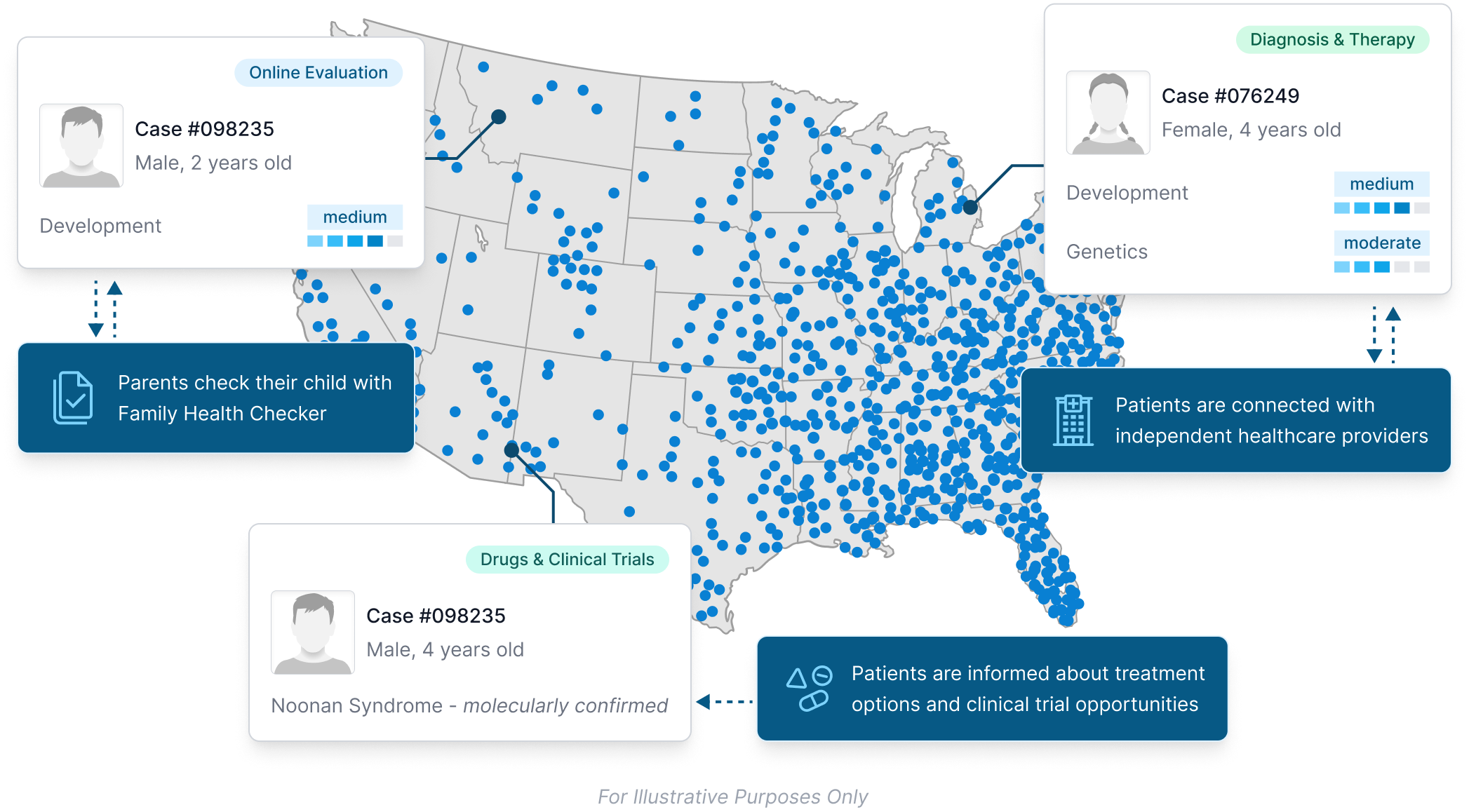
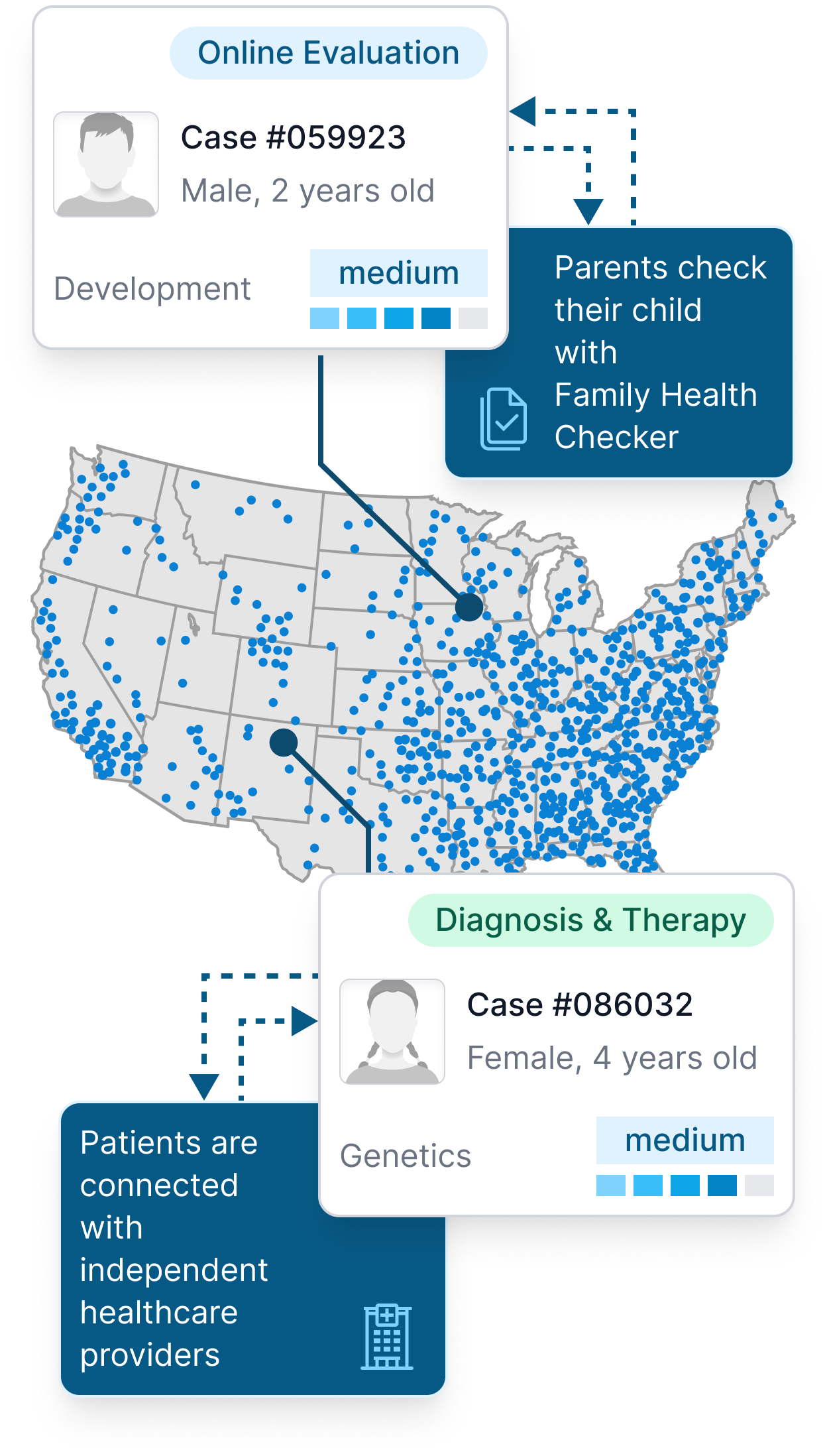
Bringing medical care closer to where it IS needed
79%
of our users live in rural areas, potentially becoming your new patients
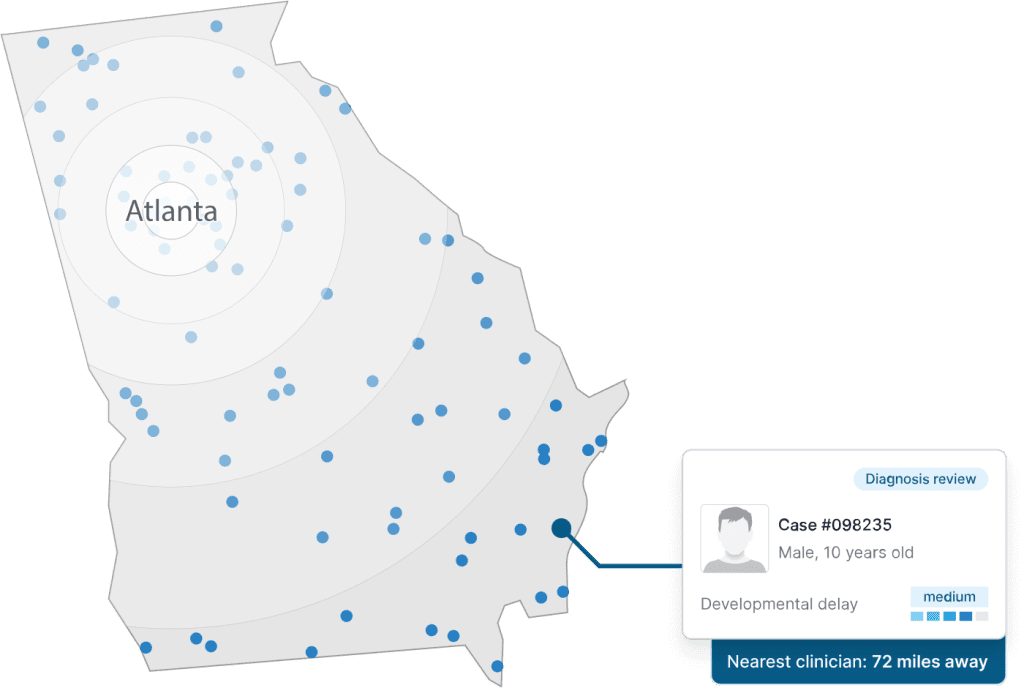
Our technology
AI-Powered Image Analysis & Risk Assessment
As the world leader in AI-powered image analysis to aid in diagnosing developmental & genetic disorders, and rare diseases, FDNA develops the most comprehensive database of relevant phenotypic information, crowdsourced from clinicians, patients, labs, and researchers. This real-world data, along with FDNA’s technologies, help expedite diagnosis and reduce the cost of care.
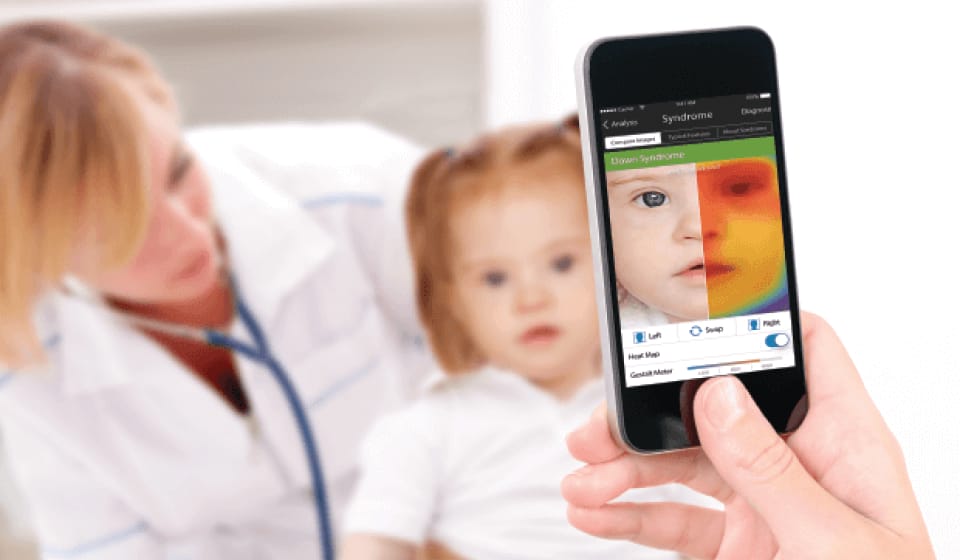
FDNA’s Multi-Modal Algorithm Framework
FDNA builds a trusted AI framework by integrating various algorithms and cross-referencing outcomes from multiple input modalities, such as image analysis, symptom assessment, natural language processing (NLP), video analysis, and voice analysis, intended to assist in detecting health signals and support the validation of health conditions
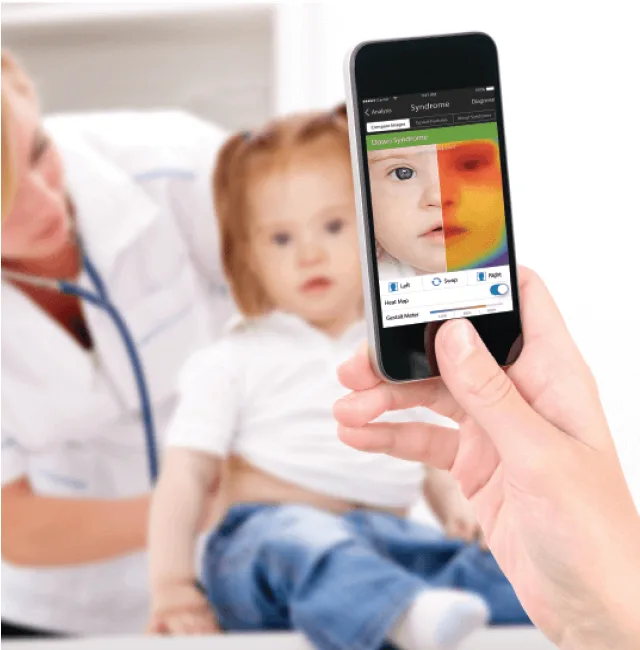
Learn More About FDNA’s Multi-Modal Algorithm Frameworks
- Deep Gestalt®: An algorithm that maps images to potential syndromes.
- Gestalt Matcher™: An algorithm to discover new or rare syndromes, and for patient matching.
- Feature Extraction Algorithm: An algorithm that searches for facial characteristics using images and maps these characteristics to HPO terms.
- Heat Maps: Provides clinicians with intuitive, visual references for why the Deep Gestalt algorithm matched certain results.
- Focus Assessment: Guides the user through a post-image analysis assessment when the AI produces two or more high-confidence results. The assessment is utilized to diminish ambiguity between syndromes that exhibit similar dysmorphic signals.
- Feature Match™: Algorithm utilizing HPOs and syndrome atrophy models, mapped to numerical vectors and syndrome-to-HPO probability score.
- Clinical Notes Analyzer: An NLP algorithm designed to extract HPOs, biomarkers, and symptoms from health records and clinical notes. It supports both text and voice input.
- Symptom Assessment: Guides parents through an assessment of their child’s condition, behaviors, symptoms, and physical features and provides content and suggestions for specialist referrals. The assessment uses a statistical matching algorithm between the detected symptoms and potential health conditions.
- D-Score™: An algorithm that determines face dysmorphology in an image.
- A-Score™: An algorithm that seeks to identify facial characteristics in autistic syndromic and non-syndromic children. Syndromic children: with a diagnosed genetic condition with specific facial dysmorphology. Non-syndromic: no genetic condition described.
As reviewed by












Apply to Get Access to Our
Pediatric Specialist’s Tools
Please submit the form, and our team will
contact you to activate your account.
Face2Gene is an informational tool for use by licensed healthcare professionals. It does not provide a diagnosis and must not be used as the sole basis for clinical decision-making. All outputs are non-diagnostic and must be validated through clinical evaluation and appropriate testing.



